Several UK and international media organisations have covered a story about BBC staff seeking to attend a march against antisemitism in London on November 26th allegedly being told not to participate by their employer. The Telegraph’s report, for example, includes the following: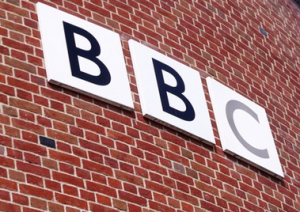
“BBC staff have accused the corporation of double standards after they were told not to attend a march against anti-Semitism this weekend.
Staff working in current affairs and factual journalism who have sought permission to go to the Campaign Against Antisemitism march in London have been referred to guidelines that tell employees not to take part in public gatherings about controversial issues.
Jewish employees have argued that protesting against racism should not be regarded as a controversial or partisan issue, and that the BBC should not stand in their way.
They have told bosses that “racism is racism” and that if the BBC believes racism is not acceptable in any form, it should allow staff to show their opposition to it. […]
According to the impartiality rules, editorial staff “should not participate in public demonstrations or gatherings about controversial issues”.
One BBC source said: “When Jewish colleagues ask permission to go on this march, they are told they can’t go.”
It has given rise to accusations that the BBC is treating anti-Semitism differently from other forms of racism. […]
A BBC spokesman said: “The BBC is clear that anti-Semitism is abhorrent. We have established guidance around marches, which explains that different considerations apply depending on what you do for the BBC. Corporately, we have not issued any staff communication on any specific march this weekend, but this does not mean discussions which consider the guidance have not taken place between colleagues.””
BBC editorial guidelines on impartiality include the following under the heading “Campaigns and Initiatives”:
“4.3.17 The BBC must remain independent and distanced from government initiatives, campaigners, charities and their agendas, no matter how apparently worthy the cause or how much their message appears to be accepted or uncontroversial.”
That clause is referenced in the BBC’s guidance on impartiality which includes sections relating to “Campaigns” and “Participating in marches or protests” – apparently the guidance referenced by the BBC spokesman.
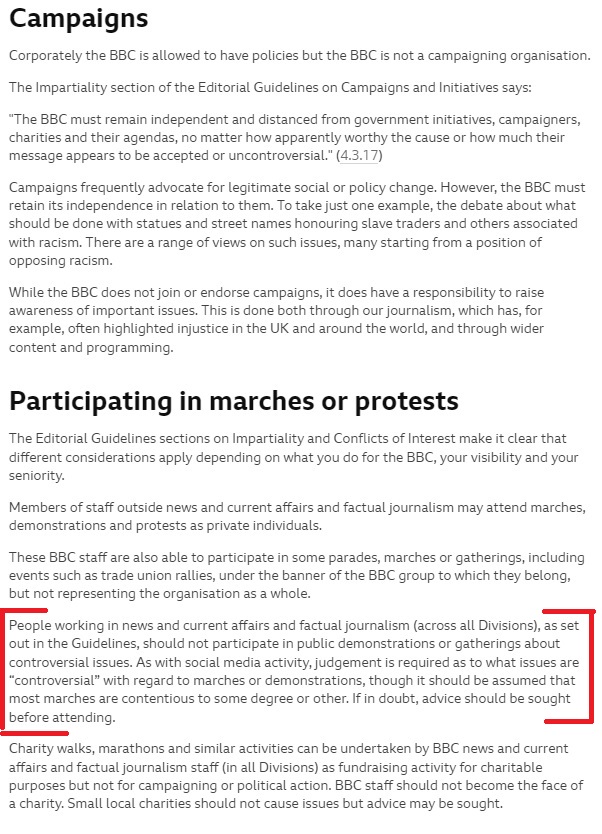
The BBC also has a guidance on “Impartiality and Racism” which includes another reference to clause 4.3.17 of the editorial guidelines on impartiality:
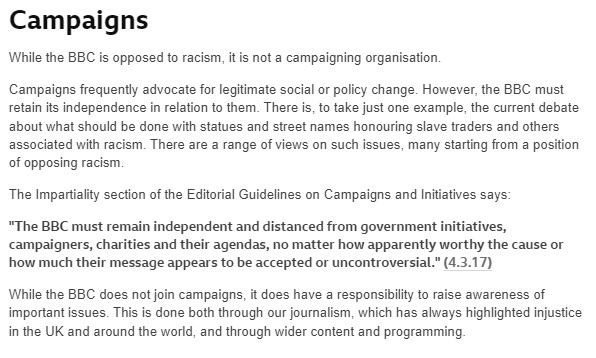
The same guidance also relates to “Participating in marches or protests”:
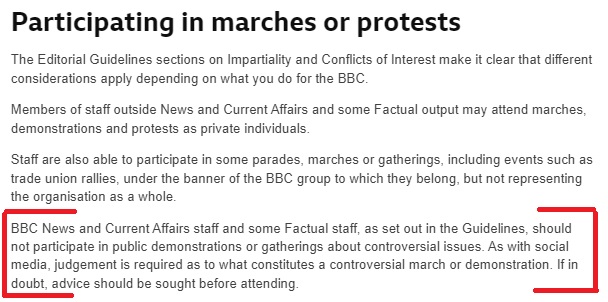
Obviously not only BBC employees – Jewish or not – would expect the UK’s national broadcaster not to categorise a demonstration against antisemitism as “controversial” or “contentious” but also many members of the BBC’s funding public and worldwide audiences.
Relatedly, long-time readers may recall that nine years ago the BBC did not consider it at all “controversial” when one of its Jerusalem bureau on-air staff participated in a propaganda campaign that included the screening of a politically partisan film at a “public gathering” in London:

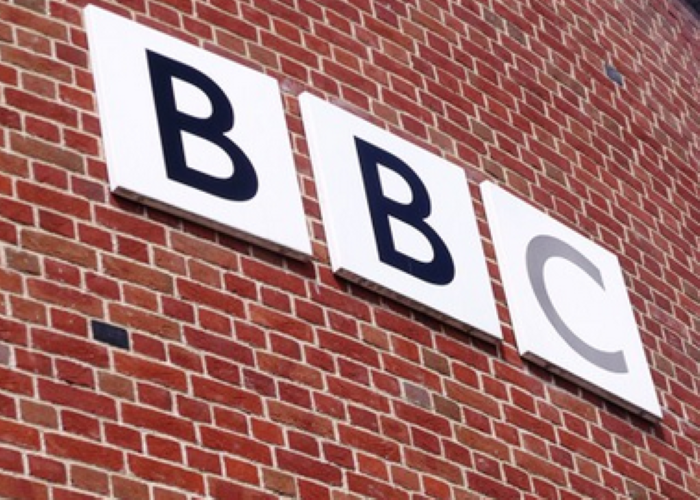
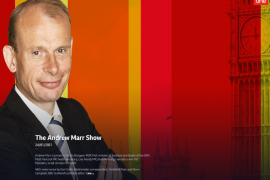


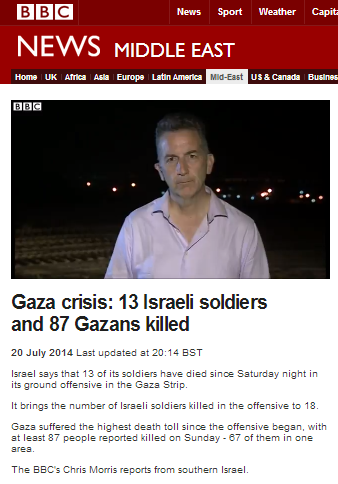
The BBC’s disgraceful policy on religions – as dictated by their appointed Religion Editor, Aleem Maqbool, a former Gaza correspondent – that is partly to blame for the bloodshed. It is no wonder that Jewish staff are not allowed to assemble against antisemitism.